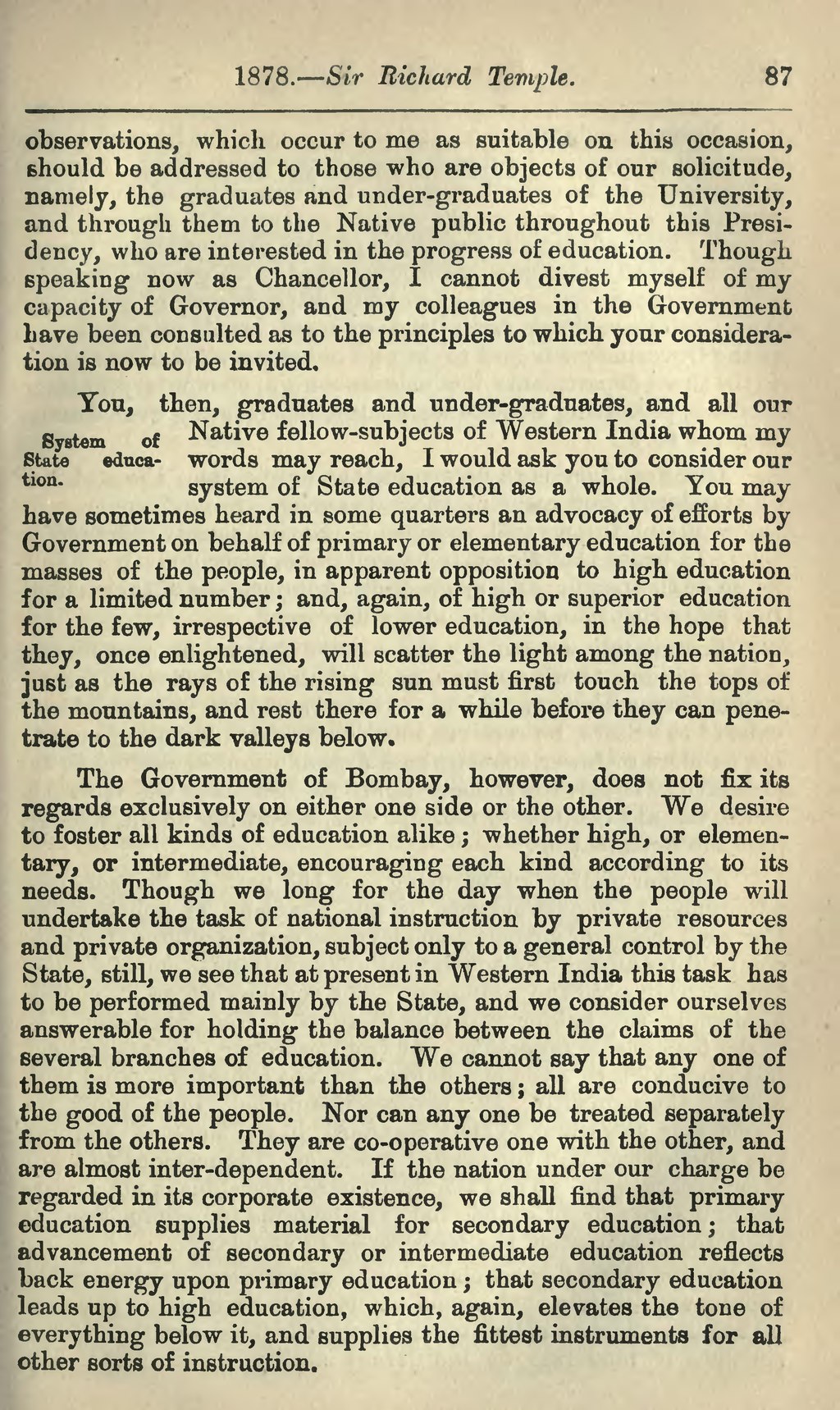observations, which occur to me as suitable on this occasion, should be addressed to those who are objects of our solicitude, namely, the graduates and uuder-graduates of the University, and through them to the Native public throughout this Presidency, who are interested in the progress of education. Though speaking now as Chancellor, I cannot divest myself of my capacity of Governor, and my colleagues in the Government have been consulted as to the principles to which your consideration is now to be invited.
You, then, graduates and under-graduates, and all our Native fellow-subjects of Western India whom my words may reach, System of State education. I would ask you to consider our system of State education as a whole. You may have sometimes heard in some quarters an advocacy of efforts by Government on behalf of primary or elementary education for the masses of the people, in apparent opposition to high education for a limited number; and, again, of high or superior education for the few, irrespective of lower education, in the hope that they, once enlightened, will scatter the light among the nation, just as the rays of the rising sun must first touch the tops of the mountains, and rest there for a while before they can penetrate to the dark valleys below.
The Government of Bombay, however, does not fix its regards exclusively on either one side or the other. We desire to foster all kinds of education alike; whether high, or elementary, or intermediate, encouraging each kind according to its needs. Though we long for the day when the people wall undertake the task of national instruction by private resources and private organization, subject only to a general control by the State, still, we see that at present in Western India this task has to be performed mainly by the State, and we consider ourselves answerable for holding the balance between the claims of the several branches of education. We cannot say that any one of them is more important than the others; all are conducive to the good of the people. Nor can any one be treated separately from the others. They are co-operative one with the other, and are almost inter-dependent. If the nation under our charge be regarded in its corporate existence, we shall find that primary education supplies material for secondary education; that advancement of secondary or intermediate education reflects back energy upon primary education; that secondary education leads up to high education, which, again, elevates the tone of everything below it, and supplies the fittest instruments for all other sorts of instruction.